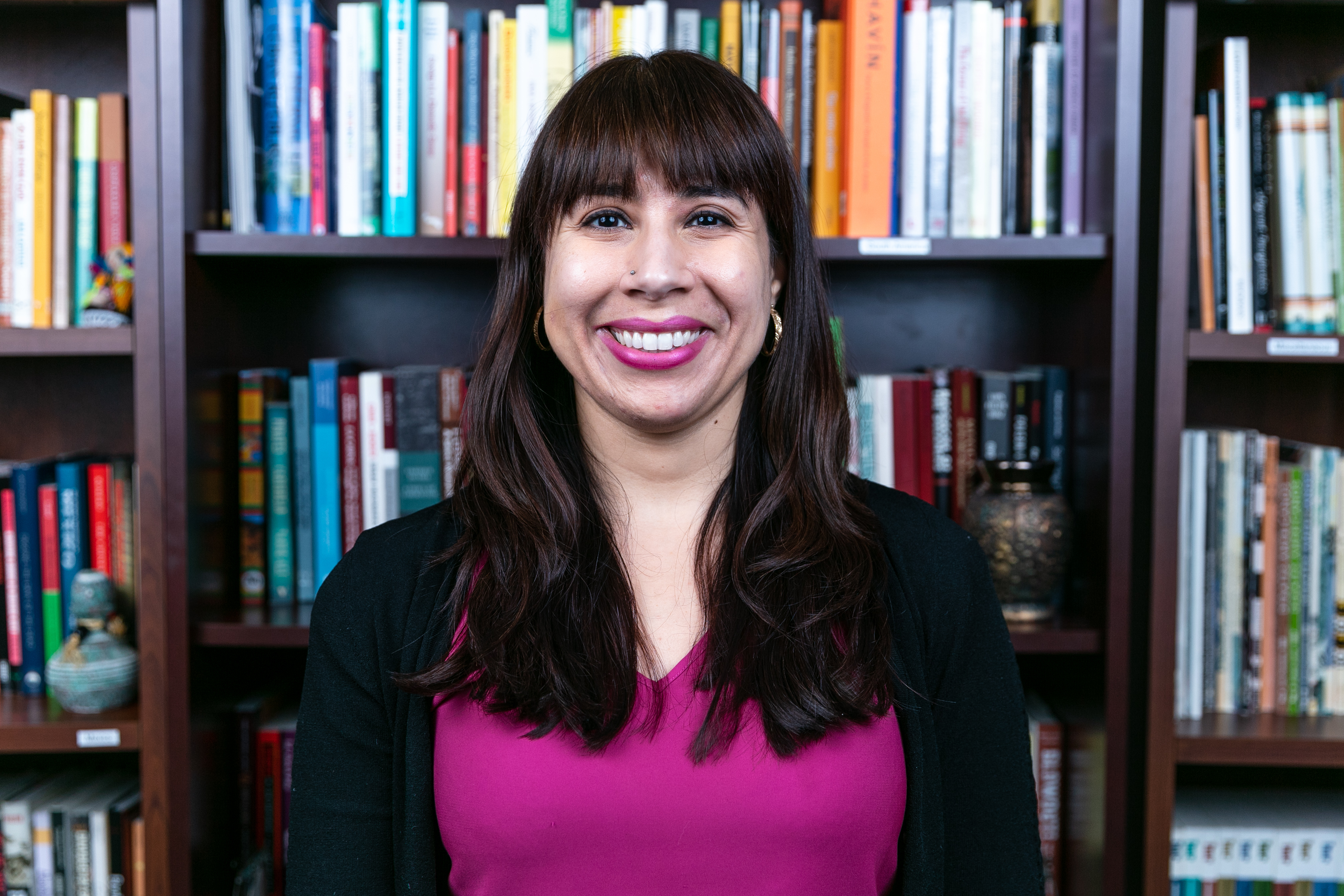 Writer Erika Sánchez begins teaching at DePaul University this quarter as the Sor Juana Inés de la Cruz Chair in the Department of Latin American and Latino Studies. (DePaul University/Randall Spriggs)
Writer Erika Sánchez begins teaching at DePaul University this quarter as the Sor Juana Inés de la Cruz Chair in the Department of Latin American and Latino Studies. (DePaul University/Randall Spriggs)When award-winning writer and poet Erika Sánchez was growing up in Cicero, Illinois, she felt a deep connection to TV cartoon heroine Lisa Simpson. Smart, feminist and not interested in the same things as her peers, Sánchez says she felt “a lot of loneliness in my love of reading and writing.”
Now, it’s easy to imagine Lisa Simpson looking up to Sánchez in her academic and professional career. She has earned a Fulbright Scholarship, a Princeton Arts fellowship and wrote a young adult novel, “I Am Not Your Perfect Mexican Daughter,” which made her a National Book Awards finalist and landed on the New York Times best-seller list. This academic year, Sánchez began teaching at DePaul University as the Sor Juana Inés de la Cruz Chair in the Department of Latin American and Latino Studies.
“As someone who grew up in the Chicago area to immigrant parents and has achieved considerable success writing about the multidimensional and complex Latina/o experience, Erika has much to offer our students and will be an outstanding role model,” says Lourdes Torres, Vincent de Paul Professor.
The chair was established at DePaul in 2001 in recognition of the important contributions Latinas/os make to Chicago and the United States. Previous recipients include renowned Latina writers Ana Castillo and Achy Obejas, and Emmy Award-winning journalist Maria Hinojosa. It’s no coincidence Sánchez has also felt a connection to the namesake of this position.
A 17th century nun, poet and philosopher, Sor Juana Inés de la Cruz was ahead of her time, though tragically the Church tried to silence her, Sánchez explains. “They took away her books and she was told not to write. It’s something a lot of women have experienced throughout history."
Mentoring young writers without a ‘formula’ for success
Sánchez takes being a mentor “very seriously” and looks forward to connecting with first generation students and young writers at DePaul.
“I understand what it means to be a college student when your family has never had that legacy or tradition,” Sánchez says.
Sánchez’s teaching philosophy made an impression on Carolina Sternberg, an associate professor and chair in the Department of Latin American and Latino Studies.
“Grounded in the work of Paulo Freire, Erika believes teaching is a collaborative process and sees students as co-creators of knowledge,” Sternberg says.
The past few years have been spectacular for Sánchez’s writing career, with the publication of both her debut poetry collection, “Lessons on Expulsion,” as well as her young adult novel in 2017. She wants to help students connect the dots between the writing life they want, and what it takes to get there.
“I had such an unconventional journey. I think a lot of people feel comforted by that,” Sánchez says. “I didn’t graduate with my MFA and suddenly become a published writer. It took many years of toiling in a fury and working a bunch of different jobs not related to what I had studied — at all — and somehow I made it work. I think a lot of people think there’s a sort of formula of how to be a writer, and there is not.”
A celebration of Latinx writers
In her graduate workshop this quarter, Sánchez is focusing on young adult novels that look at social issues and justice, with a reading list with many works by “people of color and people who identify as LGBTQ.” When Sánchez wrote “I Am Not Your Perfect Mexican Daughter,” she didn’t set out to write a young adult novel. Instead, she wanted to write “the book I wanted when I was a teenager.” She also is teaching Latinx poetry to undergraduates—poems by writers of Latin American heritage living in the U.S.
“I think it’s important we celebrate the tradition of Latinx poetry in our country. It’s something that’s not really studied enough, and it’s not given the respect that it deserves,” Sánchez says.
Her success has helped her connect with other writers she admires and respects, including some of her heroes. Sánchez has become friends with legendary Chicago poet and writer Sandra Cisneros, whose work, “The House on Mango Street,” is a classic work of Mexican-American fiction.
“One of the great joys of my life is connecting with people I really truly admire, not just as writers but as human beings,” Sánchez says. “It means a lot to me to be a part of a movement, to be a part of a community, and to know people who are changing the world in really beautiful ways."